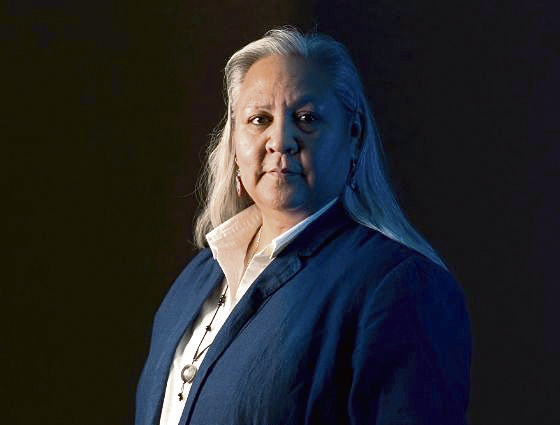
A research project funded by the federal government is looking to hear from northern Indigenous youth about the problems they face around violence and bullying and to ask them to brainstorm solutions.
University of Regina social work professor Raven Sinclair and mental health therapist Dr. Brigitte Krieg were awarded $400,000 for the Northern Prairie Spirit Youth Cultural Continuity Project that will collaborate with youth in Prince Albert, Pelican Narrows, Wollaston Lake, Stanley Mission and Fond Du Lac to understand violence and bullying issues from their perspective.
“The goal really is to tackle the issues of bullying and violence by bringing the youth together in Prince Albert and their home communities to ask them to do a needs assessment and ask them what are the gaps in services,” Sinclair said.
“And, what are the supports and resources that you need in order to address these issues.”
That will be done through digital storytelling. The youth will come together and create digital media stories to share with each other, with communities and to help inform policymakers what those affected by these issues see as the solutions.
It’s also a hope that the team will develop the tools and resources needed for culturally-sensitive crime prevention practices for Indigenous and northern populations. Those practices, Sinclair said, will then be shared with decision-makers locally, regionally and perhaps even federally. Recommendations for supports and resources will be implemented in each community.
“Youth are brilliant,” Sinclair said.
“They’re so creative, so smart. They know what they need. All we need to do is just listen. They will put their stories together, they’ll do educational videos. They’ll talk about it with the community.”
Sinclair said that too often, decision-makers and researchers think they have the solution and fail to consult the people who are directly affected.
“This project is based on Indigenous research. It’s based on the approach whereby it’s the people who are most affected … that have the best information, that has the best knowledge,” Sinclair said.
One person might not have all the information themselves, which is why we would with groups and teams of students, because we put our collective minds together and we can come up with some pretty amazing stuff. This project is really focused on raising up the voices of youth through digital storytelling.”
The communities that were chosen were ones where Krieg has existing relationships from her work as a mental health therapist. She lives in Prince Albert, but visits and works with youth in northern communities.
“These issues are coming to the fore,” Sinclair said.
“These are issues of concern for youth. The opportunity came out through (funding for) crime prevention.”
While that may seem out of place with the purposes of the study, Sinclair said that the process of completing the project will also have a positive spin-off on its participants.
“We know that there are certain conditions that put youth at risk for getting in trouble with the law,” she said.
“ But when you bring youth together, you give them attention and resources that they need to talk about these important issues, in the process of doing that research, they develop skills, they develop competence. They know that people are actually listening to them, and that can actually be transformative in the life of a youth.”

